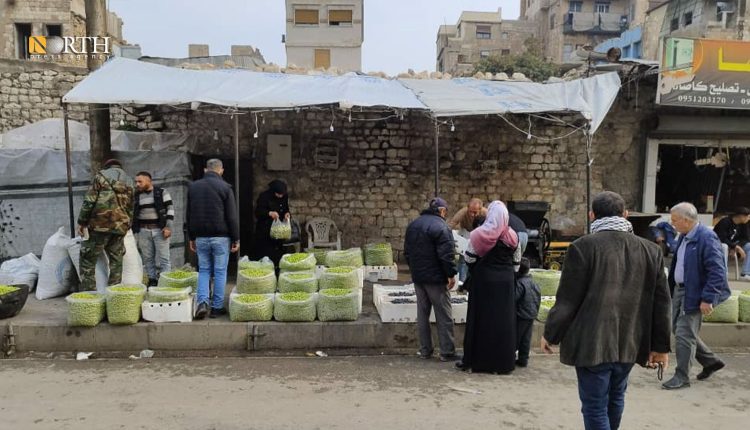HASAKAH, Syria (North Press) – In October 2024, the Autonomous Administration of North and East Syria (AANES) officially launched the Zero Waste project in Hasakah Governorate, in partnership with the Kurdish Red Crescent and with support from the international organization UPP.
The initiative, which aims to promote waste sorting and recycling, follows a successful trial phase conducted in late 2022. The pilot program involved distributing specialized garbage bins and educating households on sorting waste into categories: plastic, cardboard, metal, and organic.
Waste Sorting Progress
Amina al-Hassani, a project coordinator with the Hasakah municipality, described the significant advancements achieved through collaboration with residents. “We’ve seen remarkable improvements in waste sorting and transportation processes in the targeted neighborhoods, which now number more than ten,” she told North Press.
According to al-Hassani, households participating in the project now pre-sort their waste, streamlining its transfer to recycling facilities and landfills. Initially, waste was collected and transported to landfills without sorting.
However, through awareness campaigns—including brochures and household visits—the municipality succeeded in expanding the program and enhancing community engagement.
“The project aims to keep our city clean by ensuring timely collection and proper sorting of waste,” al-Hassani added. She highlighted the environmental benefits of producing organic fertilizer and recycling materials like plastic and cardboard at local facilities.
The Kurdish Red Crescent plays a vital role in the project, focusing on sorting medical waste from hospitals and homes. These materials are either incinerated or partially recycled to ensure safe disposal.
Fertilizer Production
A key component of the Zero Waste project is producing organic fertilizer from sorted household and institutional waste.
Majd Muhammad, the environmental officer for the project, explained that the new phase began in October 2024, expanding to additional neighborhoods in Hasakah.
During the trial phase in early 2023, approximately 500 kilograms of organic fertilizer (compost) were produced in collaboration with an agricultural expert through UPP. Samples were tested in a public laboratory to confirm their safety, with results showing over 70% organic content.
The compost was subsequently distributed to local nurseries.
Muhammad stated, “The current phase, set to last 10 months, aims to produce 5 tons of organic fertilizer at the environmental nursery managed by the directorate.”
The project also involves sending plastic waste to recycling plants and repurposing cardboard to create new products.
Muhammad emphasized that organic fertilizer is a sustainable and cost-effective alternative to chemical fertilizers, reducing environmental pollution and supporting local agriculture.

